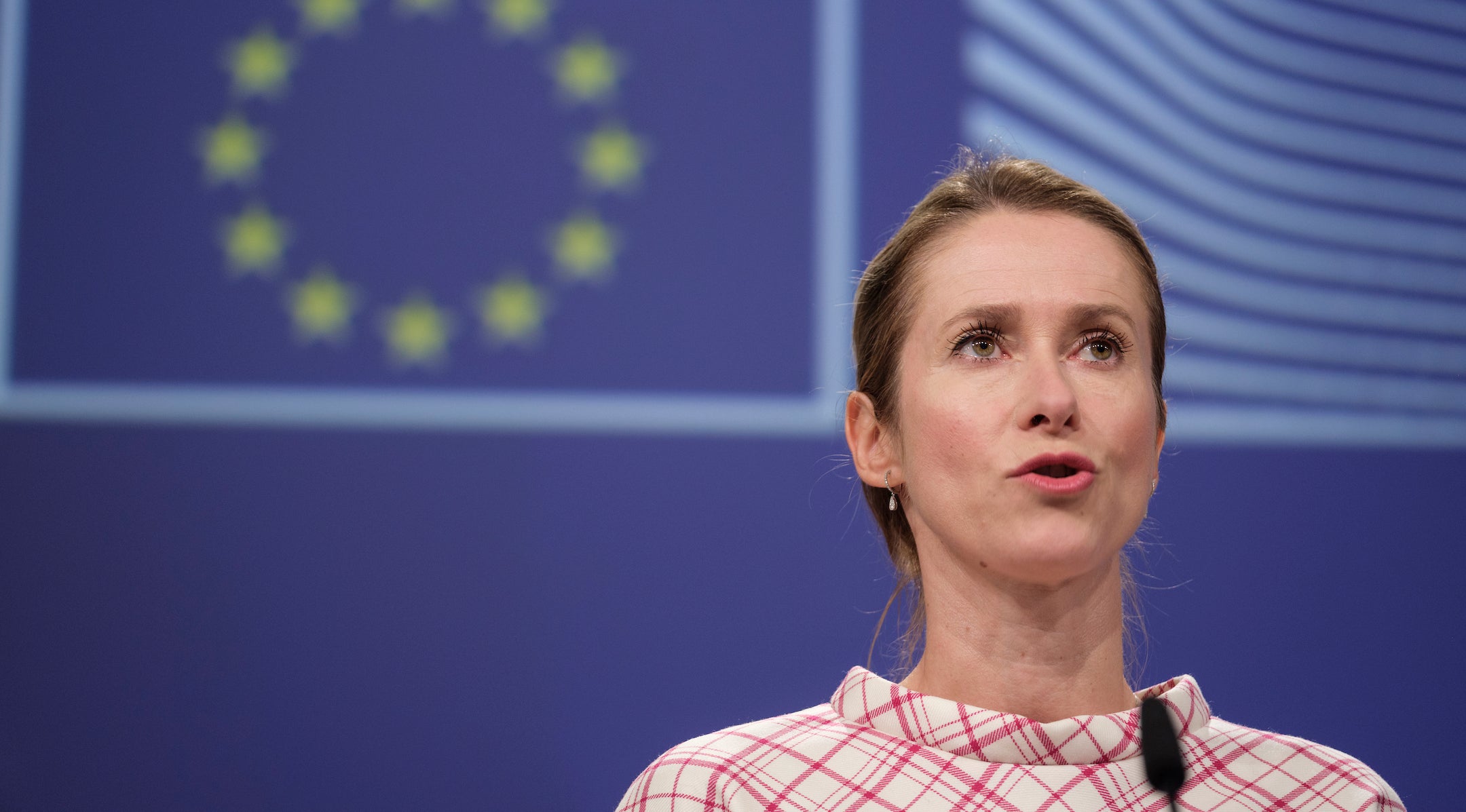European Commission seeks sweeping sanctions on Israel amid Gaza offensive
The proposal does not have sufficient backing to pass

EU foreign policy chief Kaja Kallas talks to the media on September 17 in Brussels about a proposal to impose sanctions on Israel as a response to the Gaza conflict. Photo by Thierry Monasse/Getty Images
(JTA) — The European Commission Wednesday proposed plans for the European Union to impose harsh sanctions on Israeli officials and suspend a trade arrangement with the country to urge them to change course on the war in Gaza.
While the measures currently do not have enough support from EU member nations to pass, including from Germany which said it wants to keep communication with Israel open, the proposed measures mark a major policy shift for the bloc.
The measures were proposed by Kaja Kallas, the EU’s foreign policy chief, as Israel has launched a major ground operation in Gaza City, causing many of the city’s roughly 1 million Palestinian residents to flee en masse.
“Israel’s ground offensive in Gaza will make an already desperate situation even worse,” said Kallas in a post on X. “Suspending trade concessions and imposing sanctions on extremist ministers and violent settlers would clearly signal that the EU demands an end to this war.”
The suspension of Israel’s trade agreement with the European Union would impose tariffs on about $6.87 billion of Israeli exports. Additionally, around $37.5 million in bilateral funds controlled by the European Commission would be immediately suspended as part of the plan.
Kallas also urged the EU’s 27 member nations to impose sanctions on 10 Hamas leaders, “violent” Israeli settlers and far-right Israeli National Security Minister Itamar Ben-Gvir and Finance Minister Bezalel Smotrich.
Kallas stipulated during a news conference in Brussels that the proposed measures were intended “not to punish Israel,” but rather to “improve the humanitarian situation in Gaza.”
Commission President Ursula von der Leyen, who has come under fire from some EU leaders and political groups for her lack of strong action against Israel over its offensive in Gaza, noted that the measures were designed not to affect “Israeli civil society or Yad Vashem,” Israel’s Holocaust memorial.
The announcement of the proposal drew strong condemnation from Israeli Foreign Minister Gideon Sa’ar, who called them “morally and politically distorted” in a post on X, adding that “steps against Israel will be answered accordingly, and we hope we will not be required to take them.”
“Moves against Israel will harm Europe’s own interests,” Sa’ar continued. “Israel will continue to struggle, with the help of its friends in Europe, against attempts to harm it while it is in the midst of an existential war.”
On Monday, Israeli Prime Minister Benjamin Netanyahu acknowledged at a conference in Jerusalem that Israel faces a “sort of isolation” over its prosecution of the war in Gaza, and urged greater self-reliance.
“We’ll need to develop our weapons industry. We’re going to be Athens and super Sparta combined. We have no choice, at least for the coming years when we’ll be required to deal with these isolation attempts,” he said.














